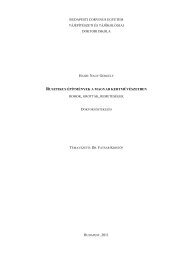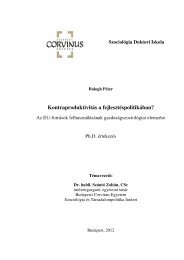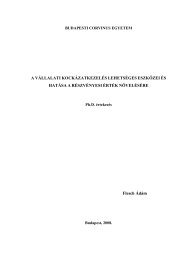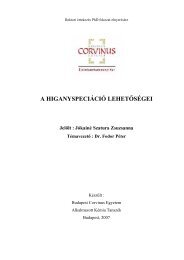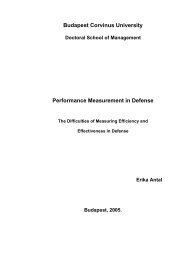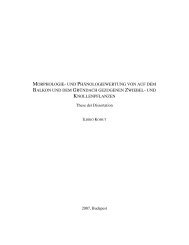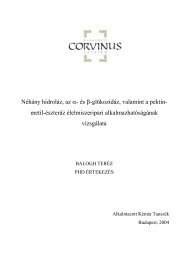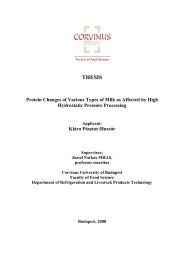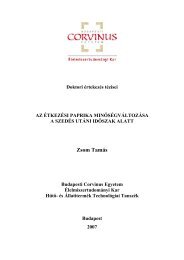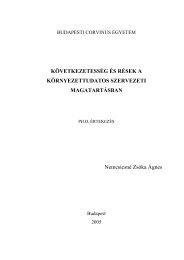Jenei István
Jenei István
Jenei István
Create successful ePaper yourself
Turn your PDF publications into a flip-book with our unique Google optimized e-Paper software.
<strong>István</strong> <strong>Jenei</strong>: Lean transformation of hospital processes – Structuring foreign and Hungarian experiences,<br />
PhD Dissertation, Corvinus University of Budapest, Doctoral School in Business Administration<br />
health care has been a topical issue in recent years in Hungary, and because this is an<br />
important issue internationally as well.<br />
The background of the research is provided by the area, information base and<br />
notions of operations management (OM). Within that, the two major issues concerned<br />
are the management of the health care service processes (i.e. health operations<br />
management), and the concept of lean management. To ensure the correct interpretation<br />
of the statements of the dissertation, it is imperative to define its basic concepts, i.e.<br />
hospital processes, quality, efficiency and lean management. This is what I shall do<br />
first.<br />
Donabedian suggests that, in general terms, the process of health care provision<br />
“…is the highly complex system of interactions and activities created between the<br />
doctor and the patient, and any other activity within the limits of the operation of the<br />
health care organisation” (Gődény, 2007, p.200.). Since the dissertation treats hospital<br />
processes, by “health care organisation” as defined by Donabedian I mean the hospitals.<br />
This definition is interpreted and specified by Ebner – Köck (1999) who, on the basis of<br />
the distinction present also in the definition, speak of main- and supportive processes.<br />
The first contribute directly to value creation, that is, the patients take part in them<br />
directly, while supportive processes enable the operation of the main processes, such as<br />
laboratory tests, laundry service, pharmacy service, sterilisation, maintenance, cleaning<br />
etc. (Figure 1).<br />
Quality is another key concept of the dissertation. Despite several attempts to<br />
define it, it has had no commonly accepted definition to this day. The dissertation starts<br />
out from the definition of quality by one of the most renowned professionals of the<br />
field. According to Feigenbaum (1983); quality “Is the totality of the market, design,<br />
manufacturing and maintenance characteristics of the product and the service, through<br />
which the latter meet the expectations of the consumer” (quoted in Gődény, 2007,<br />
p.130.). The common interpretation of quality in the health care management literature<br />
is more complex, however basically matches this definition. Donabedian identifies three<br />
components of quality within health care service. (1) The outcome (e.g. state-of-health,<br />
attained quality, mortality etc.), the (infra)structure (buildings, equipment, personnel,<br />
- 11 -



